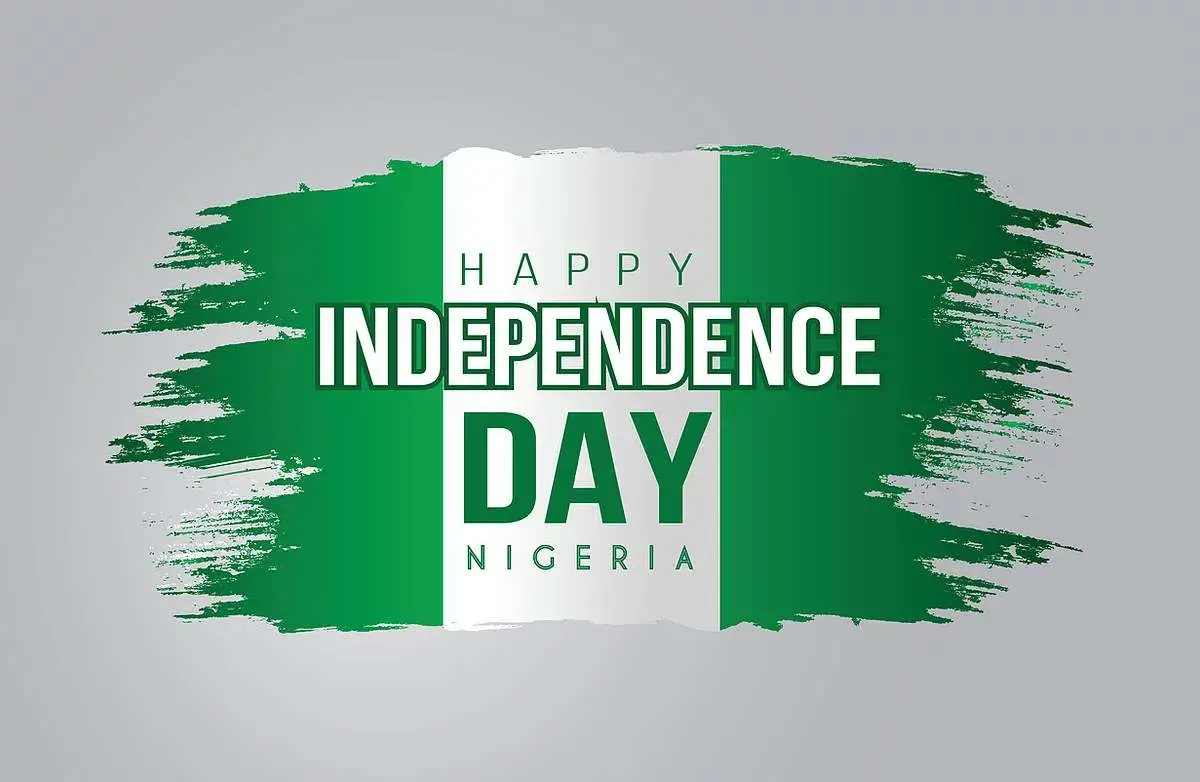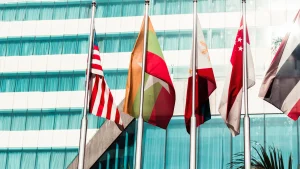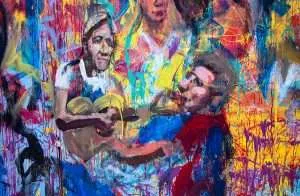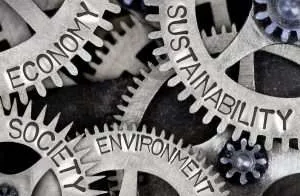The 60-year celebration of Nigerian independence Day in 2020 is the celebration of faux independence as Nigeria has yet to fully emancipate herself from the shackles of slavery. This slavery, however, isn’t overt but covert, it isn’t manifest but subliminal. Hitherto gaining independence in 1960, the slavery was manifest. However, the contemporary form of slavery is reflective in the abysmal display of patriotism on all fronts and regards.
Colonization of Nigeria
If, in 60 years of existence as an independent nation, Nigeria has yet to confidently boast of policies that favor her citizens and can only boast of policies copied from her colonizer‘s hook, line and sinker, then, what independence is there to celebrate? If we have yet to absolve plagues like ethnic rivalry, corruption, proliferation of theft, among other issues, then, there calls for a recourse in our actions, there calls for a pictorial representation of the kind of Nigeria we want and deserve; maybe that way, we would be able to plan towards the actualization of our dream Nigeria.
Celebrating Creativity and Innovation on Nigerian Independence Day
As a millennial, the first archetype I nurse is a Nigeria that appreciates creativity and innovation; there is no gain saying in that we are a people blessed with talents, innovative and creative abilities, clarity of vision, resilience, among other virtues.
The sickening reality is that these virtues are not duly apportioned the appreciation and support they deserve and because of this, hordes of talents have been silenced and / or lost to countries where they are well appreciated. But, if schemes geared towards supporting and motivating the innovative abilities of young minds are instituted by the Federal government of Nigeria, I believe that this subtle form of intellectual slavery will be absolved.
Seeking Government Stability on Nigerian Independence Day
Second, a Nigeria that is controlled by leaders who nurse a burning desire for recourse and restitution is what I desire. Young minds like myself have, over the years, witnessed so many transitions in government but these transitions influence nothing, there is a continuum of hunger and pain despite the transitions.
Leaders elected into public offices are elected on grounds of financial strength not on grounds of shown community service, not on grounds of displayed show of prestige and honor, not on grounds of brilliance and zeal for change. During election periods, contestants for public offices litter our streets with faux promises only to be elected and trail the path of their predecessors. So, I want a Nigeria controlled by patriotic, sane, brave leaders who are not afraid to take the bulls of change by the horn.
Striving for Peace on Nigerian Independence Day

Also, a peaceful Nigeria is everything; a Nigeria devoid of violence, one where insurgency is a word found in the pages of history not on the daily newspapers, one where safety of lives and properties is guaranteed. I am honestly tired of embodying fear in the crevices of my body, fear of being kidnapped, fear of leaving home whole and getting back unwhole, fear of losing all I’ve gathered as properties to the hands of thieves or the hands of ruins because this fear cripples the creativity of young minds like myself and this conversely affects our individual contribution to the development of the country.
A peaceful Nigeria is not only key to development but also key to the solidification of whatever changes that occur. I want a Nigeria devoid of favoritism, one other canker worm that has eaten deep into the sinews of all fronts, even the Healthcare system, even the judiciary.
Collaboration in Nigeria
I want a Nigeria I can call home and home is a place of respite. I want a Nigeria that is kind, a Nigeria brimmed with people who are open and ready to embrace diversity in culture and language, choked with people who are humane, who are open minded, who see life as a commonplace for collaboration and not one for unhealthy competition.
I want a Nigeria that can boast of being a giant, a Nigeria that isn’t a phony or paperish giant but one that is living up to the giant tag by being the cheerleader of progress and development on the continent. A Nigeria that is clever in her use of raw materials, one that wouldn’t be exporting crude oil to other countries and rebuy.
Final Thoughts on Nigerian Independence Day
Until the above Nigeria is actuated, we would continue celebrating decades of independence without knowing that we are still enslaved in regards stated above; intellectual slavery, financial slavery, mental slavery and even developmental crippling. Until we have a structured model out in place to actualize the kind of Nigeria stated above, I am afraid we shouldn’t be celebrating independence. And, we need not wait any further, for the future, is now.
Read: Social Problems in Nigeria
Frequently Asked Questions about Nigerian Independence Day
What is Nigerian Independence Day?
Nigerian Independence Day is the national day of Nigeria, commemorating the country’s independence from British colonial rule on October 1, 1960.
Why is October 1st celebrated as Nigerian Independence Day?
Nigeria gained independence from British colonial rule on October 1, 1960. This date is celebrated annually as Nigerian Independence Day to mark the country’s sovereignty.
How is Nigerian Independence Day celebrated?
Nigerian Independence Day is celebrated with various events and activities across the country. These include parades, cultural displays, flag-raising ceremonies, speeches by political leaders, and festivities that showcase the nation’s rich cultural heritage.
What significance does Nigerian Independence Day hold for the country?
Nigerian Independence Day is of great significance as it marks the end of colonial rule and the beginning of self-governance for the Nigerian people. It symbolizes the country’s sovereignty and the pursuit of a united, independent nation.
Are there specific traditions associated with Nigerian Independence Day celebrations?
Celebrations often include traditional dances, music performances, and cultural exhibitions that highlight Nigeria’s diverse ethnic groups. Additionally, there may be events showcasing the nation’s history and achievements.
Do Nigerians living abroad participate in Independence Day celebrations?
Yes, Nigerians living abroad often participate in Independence Day celebrations. Embassies, cultural organizations, and Nigerian communities around the world may organize events to mark the occasion.
What role does the President of Nigeria play on Independence Day?
The President of Nigeria typically plays a central role in Independence Day celebrations. This may involve delivering a national address, participating in ceremonial activities, and interacting with citizens to reflect on the nation’s progress.
Are there specific symbols associated with Nigerian Independence Day?
The Nigerian flag, which consists of two green vertical bands on the edges and a white vertical band in the middle, is a significant symbol. Additionally, the national anthem and the coat of arms are emblematic elements during Independence Day celebrations.








